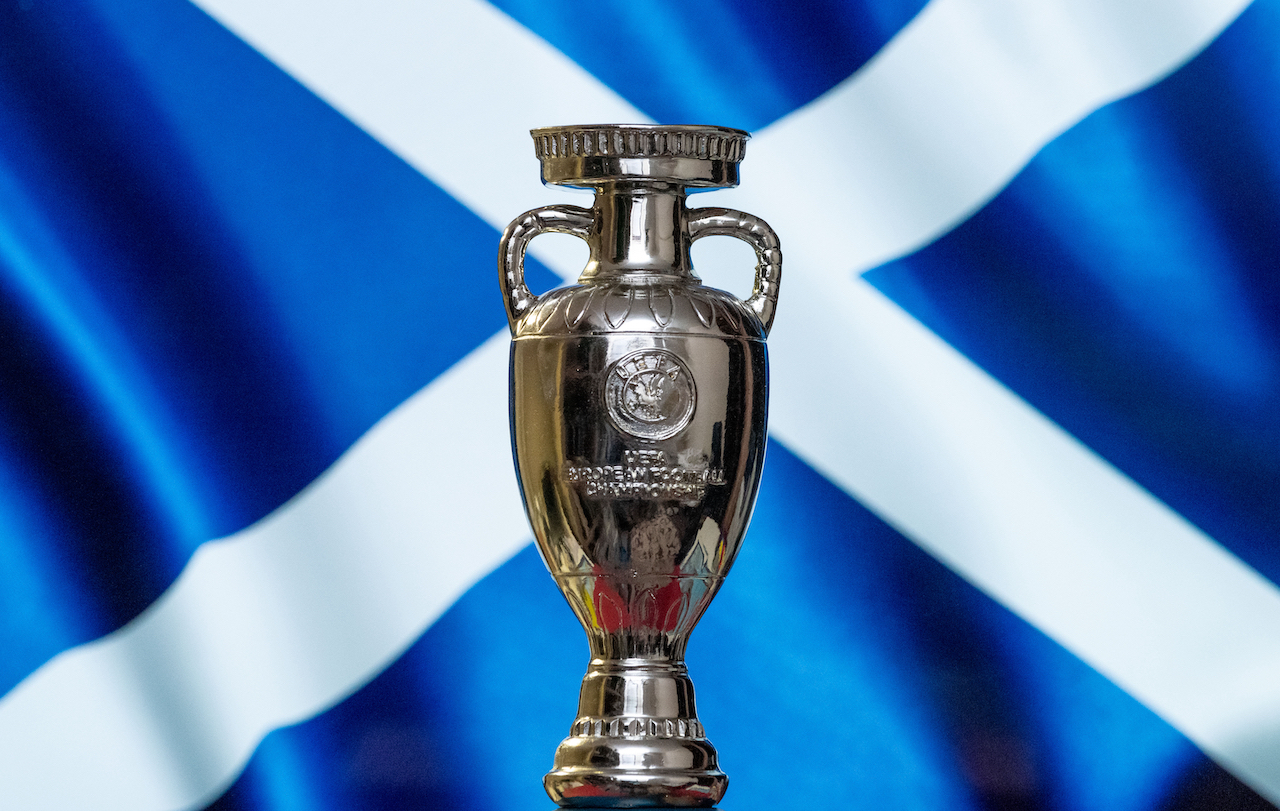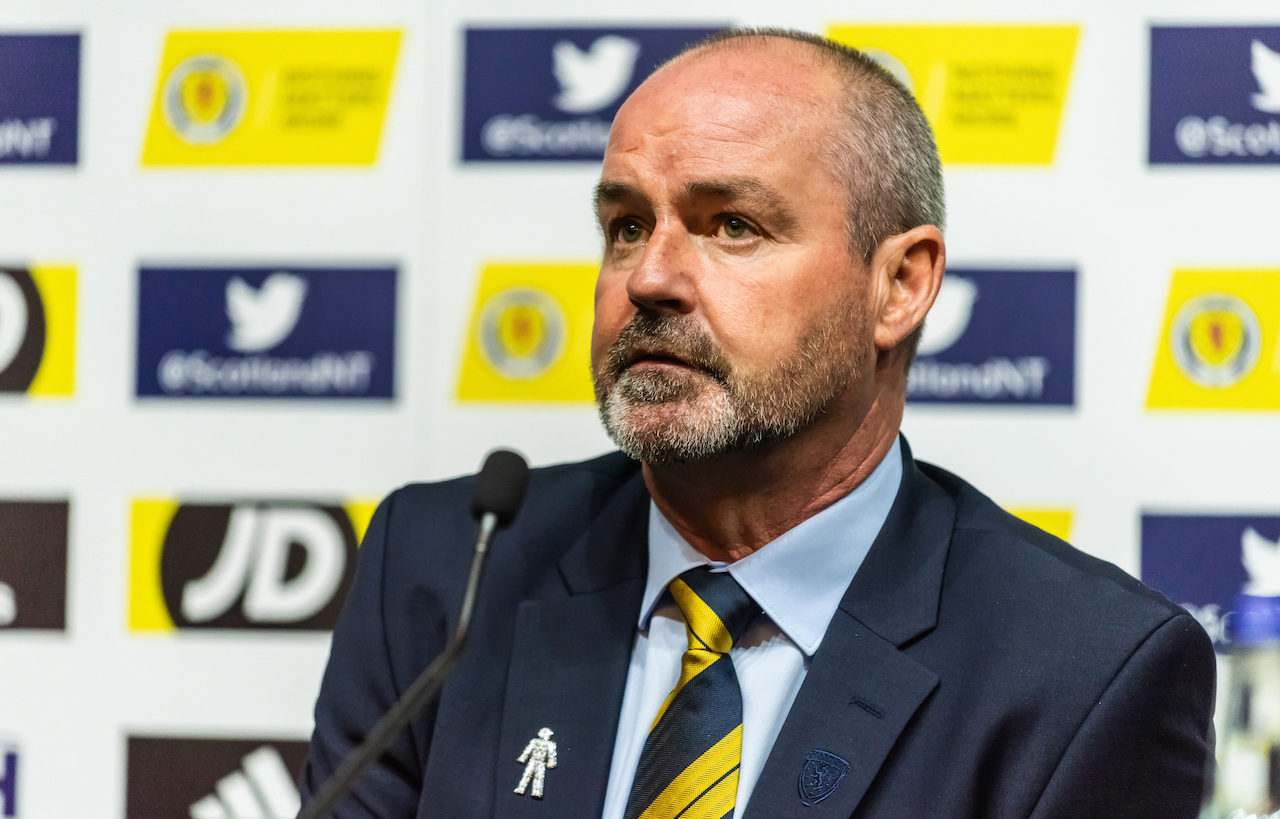
COLIN SIMPSON
But Will it be a Different Story This Time?
2020 UEFA European Football Championships
ON June 14, one of the longest and most sharply felt exiles from the upper levels of international sport will come to an end. Scotland, my team, will take on the Czech Republic at Hampden Park, Glasgow, in their opening match at the 2020 UEFA European Football Championships, better known as the Euros.
This will be the first time the boys in dark blue step on to the pitch at a major tournament in 23 years. The last occasion did not end well – an embarrassing 3-0 defeat to Morocco sent Scotland crashing out of the 1998 World Cup in France. This continued an unenviable record of never qualifying for the later stages of major competitions.
In the years that followed, Scotland did not appear in even the group stage. A string of repeated failures to qualify for either the World Cup or the Euros stretched onwards from the end of the last century. Managers came and went, and even the appointment of one from multiple World Cup winners Germany failed to halt the dismal run.
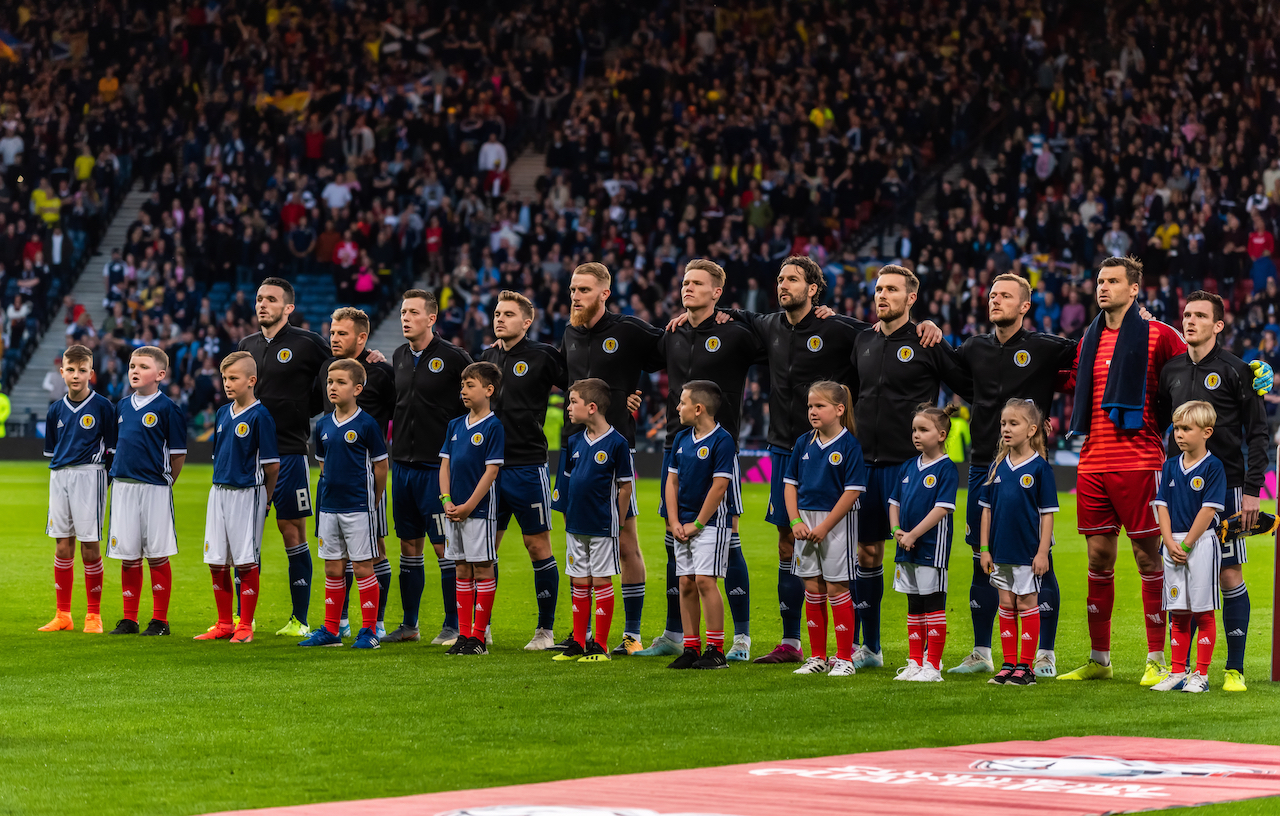
But all those years of hurt finally came to an end on Nov. 12 last year when Scotland, managed by the low-key but shrewd Steve Clarke, qualified through the play-offs by beating Serbia 5-4 on penalties. It was a typical fingernail-chewing Scottish football affair, as they had needed to rely on penalties to get through the previous play-off round.
Euro 2020, which was postponed for a year because of Covid, is being staged over a month starting on June 11 in 11 cities across Europe. UEFA has announced that the hosts will all welcome fans, which means the magnificent Tartan Army will once more be on the march. Though given the restricted attendances at most of the games, it will be more like a Tartan Battalion.
Scotland’s colourful plaid-clad supporters have made friends around the world because of their boisterous yet impeccable behaviour. Despite their team’s repeated failures on the pitch, the fans have won many awards and much praise for their sportsmanlike conduct and avoidance of trouble.
Carnival-Like Atmosphere
They create a vibrant, good-natured and carnival-like atmosphere wherever they go, and it’s a shame this has been missing from major tournaments for so long. And of course keen travellers from north of the border have missed out on opportunities to follow their team to such fabulous places as South Korea, Japan, South Africa and Russia.
I was once on a bus packed with noisy Brazil and Scotland fans. The latter were in mischievous mood as they persuaded the Brazilians to join in singing a ditty that appeared to celebrate the original Ronaldo, then regarded as the world’s greatest player. The South Americans sang along – not realizing that the last line contained a terrible insult against their hero. It was all done so good-naturedly that no offence was caused, though had the Brazil crowd understood English better the outcome might have been different.
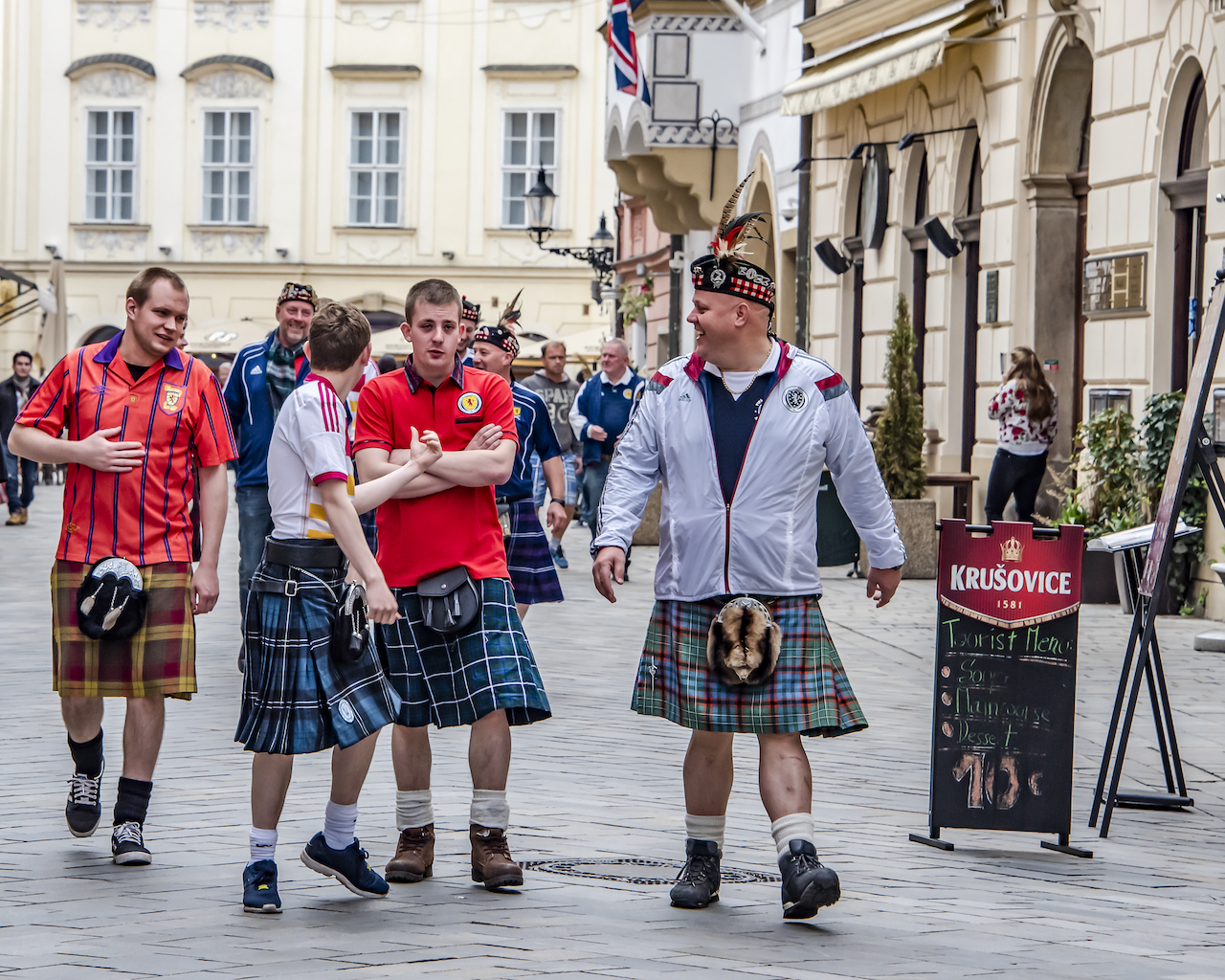
Some football managers complain ruefully that their teams always “do it the hard way”, ie make heavy weather of achieving a win. Scotland have raised this to an art form, except that wins have been few and far between.
They first appeared in the World Cup in Switzerland in 1954, suffering a 7-0 thrashing by Uruguay and crashing out with no points and no goals scored. There were many times when failure was snatched from the jaws of success. In the 1974 World Cup in West Germany, they failed to qualify for the knockout stages despite being unbeaten in their group and drawing with defending champions Brazil.
Unforgettable Goal
In Argentina four years later a 3-1 defeat in their opening match against unfancied Peru undermined their hopes of advancing, even though they went on to beat the eventual finalists, the Netherlands. The latter match featured an unforgettable (partly because for many years it was repeated endlessly on Scottish TV) virtuoso goal by Archie Gemmill.
Back then, there were many self-destructive moments involving broken curfews, drinking, chaotic preparations, and rows over commercial deals. In the run-up to the 1974 World Cup, the supremely gifted winger Jimmy Johnstone drifted out to sea in a rowing boat from the team’s training base in Scotland and had to be rescued by the coastguard.
After that Peru game, teammate Willie Johnston was sent home for failing a drugs test. And Alex Ferguson’s refusal to select Alan Hansen, at the time one of the best central defenders in the world, for the 1986 World Cup in Mexico is seen as a rare mistake in a glory-strewn career.
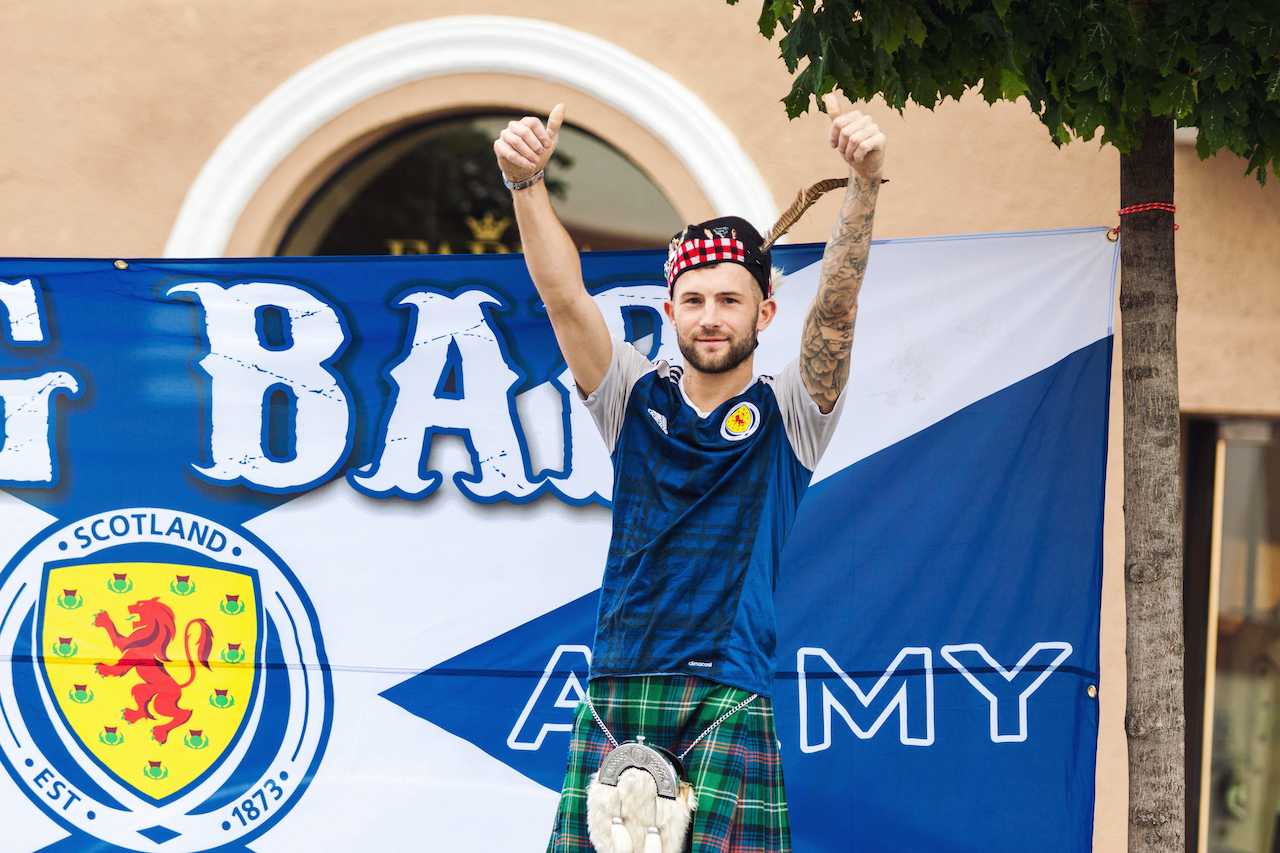
The serial humiliations were made worse by the unrealistic expectations that were sometimes whipped up beforehand. In 1978, manager Ally MacLeod went as far as saying Scotland would win the World Cup, and faced a bitter backlash when he failed to deliver.
There were further embarrassments in the Non-Qualifying Years. The campaign for 2020 started under Clarke’s predecessor with a 3-0 defeat to Kazakhstan, ranked 117th in the world – a result described by some as Scotland’s worst ever. Other poor results against underwhelming opposition included a 2-2 draw with the Faroe Islands, and there was a 6-0 trouncing by the Netherlands.
Sense of Fatalism
All of this has bred a sense of fatalism among Scotland fans that somehow suits the melancholic national character. I stopped taking much of an interest in the team during all those barren years – my way of avoiding what seemed like the inevitable eventual feelings of anticlimax and disappointment. I became resigned to the thought that my country would not qualify for a tournament again in my lifetime – or possibly ever.
The truth is that the supply of outstanding Scottish players such as Kenny Dalglish, Denis Law, Danny McGrain, Graeme Souness, Billy Bremner, Jim Baxter, Johnstone, Hansen and many others dried up in the early years of the new century. And the emergence of the Premier League with its TV deal riches limited the opportunities available to Scots. Many of the places in the starting line-ups of England’s top clubs which they had traditionally taken were now occupied by expensive foreign imports.
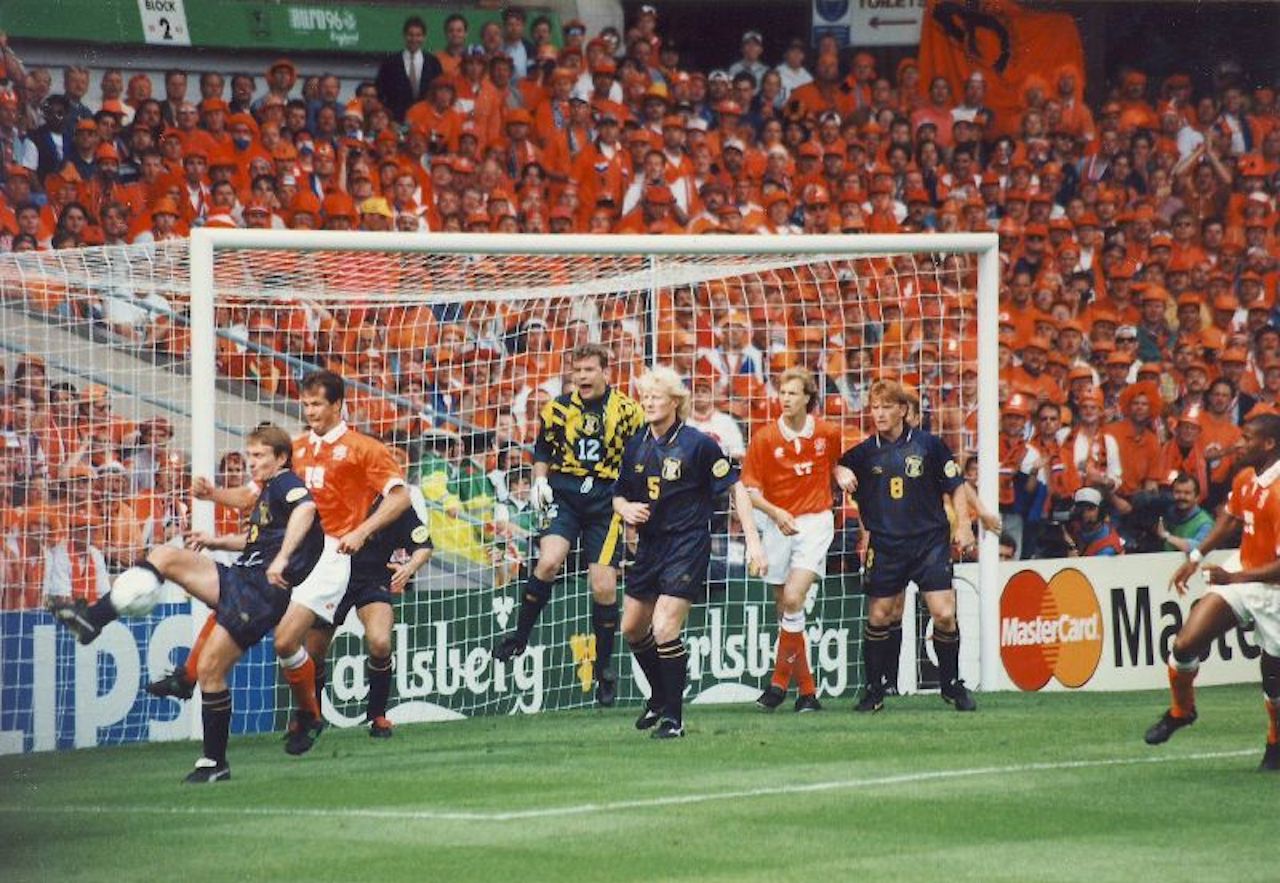
This made the lost years doubly frustrating, given the way Scotland had failed to make the most of the world-class talent it had available in previous tournaments. A sense of squandered opportunities lingered.
I attended the last match Scotland played in the finals of the Euros, against Switzerland at Villa Park, Birmingham, in 1996. It was the third of three group games, and the Scots’ campaign up to then had been a characteristic letdown. They had only one point after playing the Netherlands and England.
Nevertheless, there was still a chance that a win would see them through on goal difference. I was surprised, given the circumstances and Scotland’s past record, by how well they played. The defence, well marshalled by Colin Hendry, looked solid and reliable, and a first-half goal by Ally McCoist was enough to secure a 1-0 win.
Bitter Pill to Swallow
Elsewhere in the group, arch-rivals England looked to be doing the Scots a favour as they cruised to a 4-0 lead over the Netherlands. Had that score remained unchanged Scotland would have reached the quarter-finals, but a late consolation goal sent the Netherlands through at their expense based on the number of goals scored. Among so many disappointments, this was a particularly bitter pill to swallow.
I was also at the last tournament that Scotland qualified for, the 1998 World Cup… well, sort of. In a manner reminiscent of the team’s hapless previous foreign excursions, I travelled to Paris for the opening match between the dark blues and reigning champions Brazil, but failed to get in to see it.
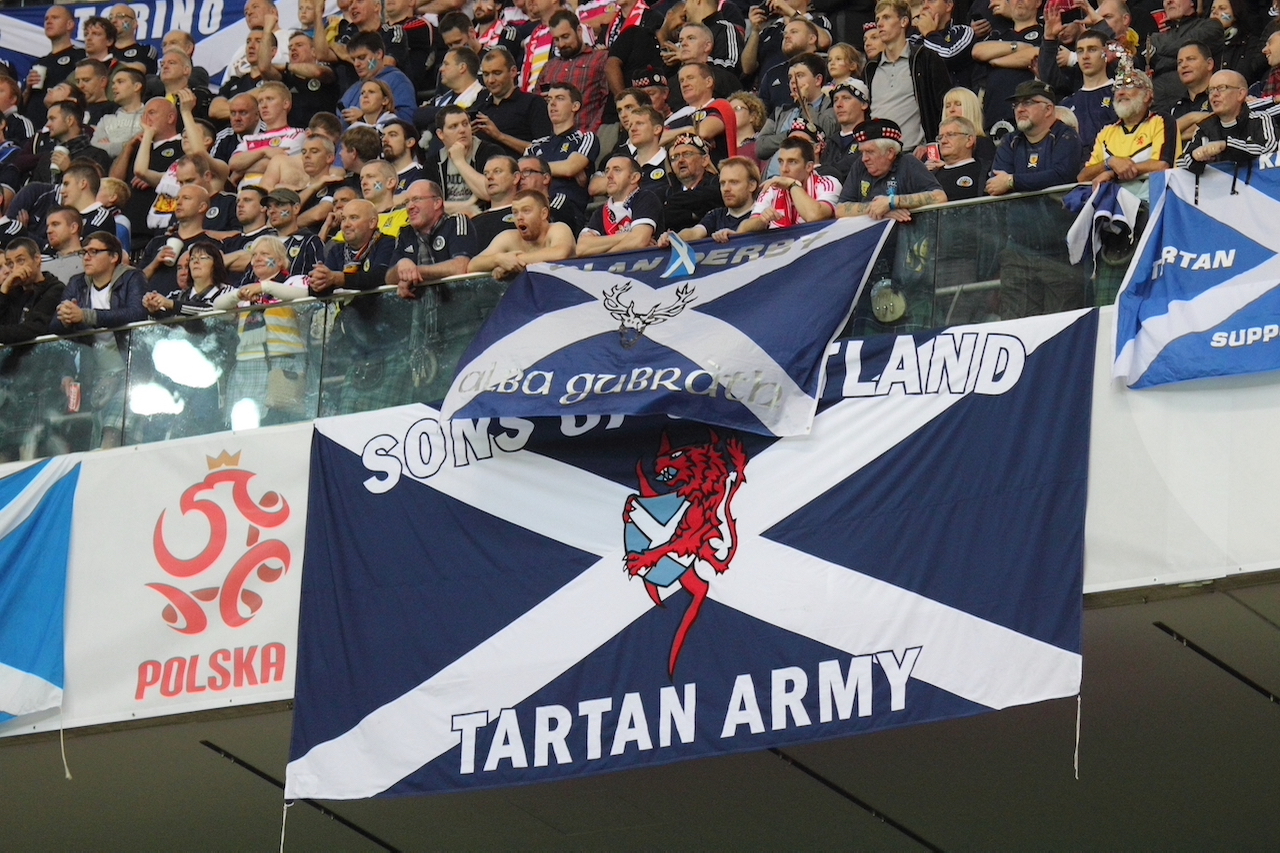
I didn’t have a ticket, blithely assuming I would be able to pick one up from a tout outside the ground. This proved trickier than I had expected. There were very few tickets available, and astronomical prices were being demanded. I was still outside the Parc des Princes when the match kicked off. The only ticket left belonged to a French guy who refused to lower the price even as the minutes started ticking away. Mighty cheers from inside after a few minutes indicated a goal, and word quickly spread that Brazil had taken the lead.
After a further 10 minutes I remained ticketless, so I gave up and headed off to a bar I’d clocked earlier where I’d be able to watch the game on TV. As I approached the door there was a deafening roar, and a jubilant, Scottish-looking head appeared through a window. Scotland fans were celebrating wildly as their team had only gone and equalised through a penalty!
Sea of Tartan
Inside the bar was a sea of tartan, and it was like watching Brazil play Brazil as my team went toe-to-toe with the world champions. It couldn’t last, of course, and typically the game was decided by an own goal scored by Scotland’s Tom Boyd. The campaign degenerated into a classic Scotland fiasco, as they finished last in their group with just one point from three matches.
And that was the last time Scotland were seen in a major tournament for more than 20 years. Many of the fans who will watch Clarke’s side tackle the Czech Republic next month will not have been born when that 1998 campaign crumbled into dust. Don’t expect any bombast about Scotland winning the Euros – the chastening years of failure have left everyone concerned, including the fans, with realistic expectations.
I’ll be following the Scots at Euro 2020 from another small but equally football-mad country, Portugal. Their team has been rather more successful, though – they’re the defending champions. And the enduring brilliance of their 36-year-old captain, the other Ronaldo (36 goals so far this season for Juventus), means they could win the tournament again.
So I guess I’ll start following them once Scotland get knocked out.
Top picture: Guess who he supports? Photo: Ukrphoto/Dreamstime.com. Byline picture backdrop: Tartantown
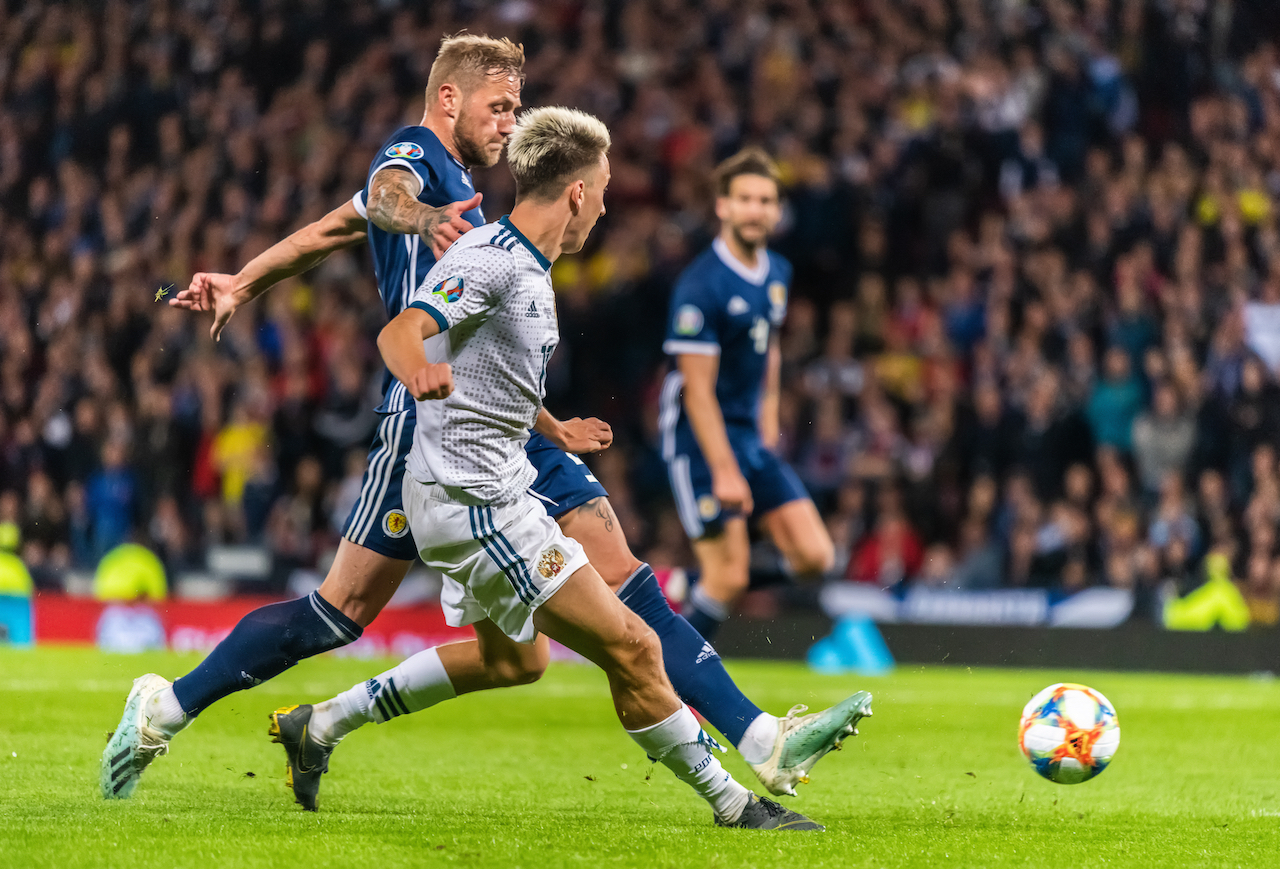
NEED TO KNOW: Euro 2020
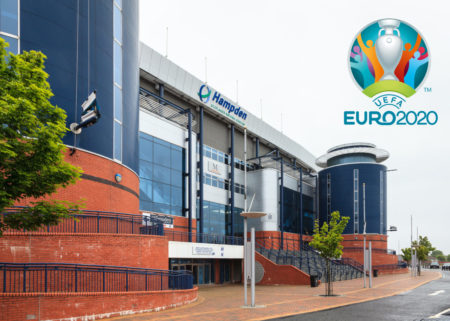
COVID: It’s worth keeping an eye on the official Euro 2020 site (details below) for any pandemic-related late changes and updates to ticketing arrangements. The schedule has been altered, with Seville replacing Bilbao as a host city, and the Dublin matches switching to Saint Petersburg and London. Reduced capacities will apply in all but one of the host cities – Budapest is aiming for 100 percent attendance. If you’re planning to travel to matches, remember to check any restrictions that may apply. Health and safety measures will be in place in the stadiums.
OVERVIEW: Games will be held from June 11 to July 11 in 11 host cities across Europe: Amsterdam, Baku, Bucharest, Budapest, Copenhagen, Glasgow, Munich, London, Rome, Seville and Saint Petersburg. The 24 teams have been split into six groups of four. The top two in each group will advance to the 16-team knockout phase along with the four top-ranked third-place finishers (Scotland fans can stop reading here). The July 11 final will take place at London’s Wembley Stadium.
VAR: Stand by for plenty of controversy! The Video Assistant Referee system – loathed by many players, managers and fans alike – will be used for the first time in the Euros.
May 2021
MORE INFO
 FIND out more about the tournament, the host cities and other details at the official Euro 2020 site. READ MORE
FIND out more about the tournament, the host cities and other details at the official Euro 2020 site. READ MORE
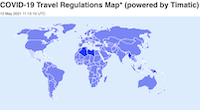 THE online Covid travel map provided by International Air Transport Association is a helpful guide to restrictions, which can change quickly. READ MORE
THE online Covid travel map provided by International Air Transport Association is a helpful guide to restrictions, which can change quickly. READ MORE
 THE growing profile of women’s football means there’s likely to be a lot of interest in the UEFA Women’s Euro 2022 tournament, to be held in England next summer. Check out the official site for full details (and no, Scotland didn’t qualify). READ MORE
THE growing profile of women’s football means there’s likely to be a lot of interest in the UEFA Women’s Euro 2022 tournament, to be held in England next summer. Check out the official site for full details (and no, Scotland didn’t qualify). READ MORE
RELATED
 FIRST ZHUHAI CHAMPIONSHIPS: Tennis great Andy Murray returned to action at the Zhuhai Championships, a new ATP tournament in China, after a year in which he feared his glittering career was over. READ MORE
FIRST ZHUHAI CHAMPIONSHIPS: Tennis great Andy Murray returned to action at the Zhuhai Championships, a new ATP tournament in China, after a year in which he feared his glittering career was over. READ MORE
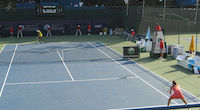 WEIRDEST TENNIS MATCH EVER? The day seven-time Grand Slam winner Venus Williams played a big semi-final on a club-level outside court in Dubai. READ MORE
WEIRDEST TENNIS MATCH EVER? The day seven-time Grand Slam winner Venus Williams played a big semi-final on a club-level outside court in Dubai. READ MORE
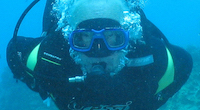 THE EARLY DAYS OF DIVING: For many divers of a certain age, it all started with the James Bond film Thunderball. Until then, the only time you saw divers on screen was in documentaries such as Jacques Cousteau’s The Silent World… READ MORE
THE EARLY DAYS OF DIVING: For many divers of a certain age, it all started with the James Bond film Thunderball. Until then, the only time you saw divers on screen was in documentaries such as Jacques Cousteau’s The Silent World… READ MORE
RECOMMENDED
 WELCOME TO OUR WORLD! Afaranwide’s home page – this is where you can find out about our latest posts and other highlights. READ MORE
WELCOME TO OUR WORLD! Afaranwide’s home page – this is where you can find out about our latest posts and other highlights. READ MORE
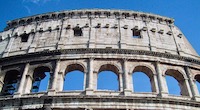 TOP 10 VIRTUAL ATTRACTIONS: Many of the world’s most popular tourists sites are closed because of the coronavirus crisis, but you can still visit them virtually while you’re self-isolating. READ MORE
TOP 10 VIRTUAL ATTRACTIONS: Many of the world’s most popular tourists sites are closed because of the coronavirus crisis, but you can still visit them virtually while you’re self-isolating. READ MORE
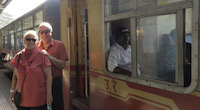 SHIMLA, QUEEN OF THE HILLS: Government officials once retreated to Shimla in the foothills of the Himalayas to escape India’s blazing hot summers. Now tourists make the same journey. READ MORE
SHIMLA, QUEEN OF THE HILLS: Government officials once retreated to Shimla in the foothills of the Himalayas to escape India’s blazing hot summers. Now tourists make the same journey. READ MORE
 TEN THINGS WE LEARNED: Our up-to-the-minute guide to creating a website, one step at a time. The costs, the mistakes – it’s what we wish we’d known when we started blogging. READ MORE
TEN THINGS WE LEARNED: Our up-to-the-minute guide to creating a website, one step at a time. The costs, the mistakes – it’s what we wish we’d known when we started blogging. READ MORE
 TROUBLED TIMES FOR EXPATS: Moving abroad can seem an idyllic prospect, but what happens when sudden upheavals or the inescapable realities of life intrude? READ MORE
TROUBLED TIMES FOR EXPATS: Moving abroad can seem an idyllic prospect, but what happens when sudden upheavals or the inescapable realities of life intrude? READ MORE
Disclosure: Afaranwide is an affiliate of leading travel operators such as Booking.com and Japan Rail Pass. If you purchase through our site we receive, at no additional cost to you, a small commission. We only work with companies we have used and recommend.
LET'S KEEP IN TOUCH!

COLIN SIMPSON
But Will it be a Different Story This Time?
2020 UEFA European Football Championships
ON June 14, one of the longest and most sharply felt exiles from the upper levels of international sport will come to an end. Scotland, my team, will take on the Czech Republic at Hampden Park, Glasgow, in their opening match at the 2020 UEFA European Football Championships, better known as the Euros.
This will be the first time the boys in dark blue step on to the pitch at a major tournament in 23 years. The last occasion did not end well – an embarrassing 3-0 defeat to Morocco sent Scotland crashing out of the 1998 World Cup in France. This continued an unenviable record of never qualifying for the later stages of major competitions.
In the years that followed, Scotland did not appear in even the group stage. A string of repeated failures to qualify for either the World Cup or the Euros stretched onwards from the end of the last century. Managers came and went, and even the appointment of one from multiple World Cup winners Germany failed to halt the dismal run.

But all those years of hurt finally came to an end on Nov. 12 last year when Scotland, managed by the low-key but shrewd Steve Clarke, qualified through the play-offs by beating Serbia 5-4 on penalties. It was a typical fingernail-chewing Scottish football affair, as they had needed to rely on penalties to get through the previous play-off round.
Euro 2020, which was postponed for a year because of Covid, is being staged over a month starting on June 11 in 11 cities across Europe. UEFA has announced that the hosts will all welcome fans, which means the magnificent Tartan Army will once more be on the march. Though given the restricted attendances at most of the games, it will be more like a Tartan Battalion.
Scotland’s colourful plaid-clad supporters have made friends around the world because of their boisterous yet impeccable behaviour. Despite their team’s repeated failures on the pitch, the fans have won many awards and much praise for their sportsmanlike conduct and avoidance of trouble.
Carnival-Like Atmosphere
They create a vibrant, good-natured and carnival-like atmosphere wherever they go, and it’s a shame this has been missing from major tournaments for so long. And of course keen travellers from north of the border have missed out on opportunities to follow their team to such fabulous places as South Korea, Japan, South Africa and Russia.
I was once on a bus packed with noisy Brazil and Scotland fans. The latter were in mischievous mood as they persuaded the Brazilians to join in singing a ditty that appeared to celebrate the original Ronaldo, then regarded as the world’s greatest player. The South Americans sang along – not realizing that the last line contained a terrible insult against their hero. It was all done so good-naturedly that no offence was caused, though had the Brazil crowd understood English better the outcome might have been different.

Some football managers complain ruefully that their teams always “do it the hard way”, ie make heavy weather of achieving a win. Scotland have raised this to an art form, except that wins have been few and far between.
They first appeared in the World Cup in Switzerland in 1954, suffering a 7-0 thrashing by Uruguay and crashing out with no points and no goals scored. There were many times when failure was snatched from the jaws of success. In the 1974 World Cup in West Germany, they failed to qualify for the knockout stages despite being unbeaten in their group and drawing with defending champions Brazil.
Unforgettable Goal
In Argentina four years later a 3-1 defeat in their opening match against unfancied Peru undermined their hopes of advancing, even though they went on to beat the eventual finalists, the Netherlands. The latter match featured an unforgettable (partly because for many years it was repeated endlessly on Scottish TV) virtuoso goal by Archie Gemmill.
Back then, there were many self-destructive moments involving broken curfews, drinking, chaotic preparations, and rows over commercial deals. In the run-up to the 1974 World Cup, the supremely gifted winger Jimmy Johnstone drifted out to sea in a rowing boat from the team’s training base in Scotland and had to be rescued by the coastguard.
After that Peru game, teammate Willie Johnston was sent home for failing a drugs test. And Alex Ferguson’s refusal to select Alan Hansen, at the time one of the best central defenders in the world, for the 1986 World Cup in Mexico is seen as a rare mistake in a glory-strewn career.

The serial humiliations were made worse by the unrealistic expectations that were sometimes whipped up beforehand. In 1978, manager Ally MacLeod went as far as saying Scotland would win the World Cup, and faced a bitter backlash when he failed to deliver.
There were further embarrassments in the Non-Qualifying Years. The campaign for 2020 started under Clarke’s predecessor with a 3-0 defeat to Kazakhstan, ranked 117th in the world – a result described by some as Scotland’s worst ever. Other poor results against underwhelming opposition included a 2-2 draw with the Faroe Islands, and there was a 6-0 trouncing by the Netherlands.
Sense of Fatalism
All of this has bred a sense of fatalism among Scotland fans that somehow suits the melancholic national character. I stopped taking much of an interest in the team during all those barren years – my way of avoiding what seemed like the inevitable eventual feelings of anticlimax and disappointment. I became resigned to the thought that my country would not qualify for a tournament again in my lifetime – or possibly ever.
The truth is that the supply of outstanding Scottish players such as Kenny Dalglish, Denis Law, Danny McGrain, Graeme Souness, Billy Bremner, Jim Baxter, Johnstone, Hansen and many others dried up in the early years of the new century. And the emergence of the Premier League with its TV deal riches limited the opportunities available to Scots. Many of the places in the starting line-ups of England’s top clubs which they had traditionally taken were now occupied by expensive foreign imports.

This made the lost years doubly frustrating, given the way Scotland had failed to make the most of the world-class talent it had available in previous tournaments. A sense of squandered opportunities lingered.
I attended the last match Scotland played in the finals of the Euros, against Switzerland at Villa Park, Birmingham, in 1996. It was the third of three group games, and the Scots’ campaign up to then had been a characteristic letdown. They had only one point after playing the Netherlands and England.
Nevertheless, there was still a chance that a win would see them through on goal difference. I was surprised, given the circumstances and Scotland’s past record, by how well they played. The defence, well marshalled by Colin Hendry, looked solid and reliable, and a first-half goal by Ally McCoist was enough to secure a 1-0 win.
Bitter Pill to Swallow
Elsewhere in the group, arch-rivals England looked to be doing the Scots a favour as they cruised to a 4-0 lead over the Netherlands. Had that score remained unchanged Scotland would have reached the quarter-finals, but a late consolation goal sent the Netherlands through at their expense based on the number of goals scored. Among so many disappointments, this was a particularly bitter pill to swallow.
I was also at the last tournament that Scotland qualified for, the 1998 World Cup… well, sort of. In a manner reminiscent of the team’s hapless previous foreign excursions, I travelled to Paris for the opening match between the dark blues and reigning champions Brazil, but failed to get in to see it.

I didn’t have a ticket, blithely assuming I would be able to pick one up from a tout outside the ground. This proved trickier than I had expected. There were very few tickets available, and astronomical prices were being demanded. I was still outside the Parc des Princes when the match kicked off. The only ticket left belonged to a French guy who refused to lower the price even as the minutes started ticking away. Mighty cheers from inside after a few minutes indicated a goal, and word quickly spread that Brazil had taken the lead.
After a further 10 minutes I remained ticketless, so I gave up and headed off to a bar I’d clocked earlier where I’d be able to watch the game on TV. As I approached the door there was a deafening roar, and a jubilant, Scottish-looking head appeared through a window. Scotland fans were celebrating wildly as their team had only gone and equalised through a penalty!
Sea of Tartan
Inside the bar was a sea of tartan, and it was like watching Brazil play Brazil as my team went toe-to-toe with the world champions. It couldn’t last, of course, and typically the game was decided by an own goal scored by Scotland’s Tom Boyd. The campaign degenerated into a classic Scotland fiasco, as they finished last in their group with just one point from three matches.
And that was the last time Scotland were seen in a major tournament for more than 20 years. Many of the fans who will watch Clarke’s side tackle the Czech Republic next month will not have been born when that 1998 campaign crumbled into dust. Don’t expect any bombast about Scotland winning the Euros – the chastening years of failure have left everyone concerned, including the fans, with realistic expectations.
I’ll be following the Scots at Euro 2020 from another small but equally football-mad country, Portugal. Their team has been rather more successful, though – they’re the defending champions. And the enduring brilliance of their 36-year-old captain, the other Ronaldo (36 goals so far this season for Juventus), means they could win the tournament again.
So I guess I’ll start following them once Scotland get knocked out.
Top picture: Guess who he supports? Photo: Ukrphoto/Dreamstime.com. Byline picture backdrop: Tartantown

NEED TO KNOW: Euro 2020

COVID: It’s worth keeping an eye on the official Euro 2020 site (details below) for any pandemic-related late changes and updates to ticketing arrangements. The schedule has been altered, with Seville replacing Bilbao as a host city, and the Dublin matches switching to Saint Petersburg and London. Reduced capacities will apply in all but one of the host cities – Budapest is aiming for 100 percent attendance. If you’re planning to travel to matches, remember to check any restrictions that may apply. Health and safety measures will be in place in the stadiums.
OVERVIEW: Games will be held from June 11 to July 11 in 11 host cities across Europe: Amsterdam, Baku, Bucharest, Budapest, Copenhagen, Glasgow, Munich, London, Rome, Seville and Saint Petersburg. The 24 teams have been split into six groups of four. The top two in each group will advance to the 16-team knockout phase along with the four top-ranked third-place finishers (Scotland fans can stop reading here). The July 11 final will take place at London’s Wembley Stadium.
VAR: Stand by for plenty of controversy! The Video Assistant Referee system – loathed by many players, managers and fans alike – will be used for the first time in the Euros.
May 2021
MORE INFO
 FIND out more about the tournament, the host cities and other details at the official Euro 2020 site. READ MORE
FIND out more about the tournament, the host cities and other details at the official Euro 2020 site. READ MORE
 THE online Covid travel map provided by International Air Transport Association is a helpful guide to restrictions, which can change quickly. READ MORE
THE online Covid travel map provided by International Air Transport Association is a helpful guide to restrictions, which can change quickly. READ MORE
 THE growing profile of women’s football means there’s likely to be a lot of interest in the UEFA Women’s Euro 2022 tournament, to be held in England next summer. Check out the official site for full details (and no, Scotland didn’t qualify). READ MORE
THE growing profile of women’s football means there’s likely to be a lot of interest in the UEFA Women’s Euro 2022 tournament, to be held in England next summer. Check out the official site for full details (and no, Scotland didn’t qualify). READ MORE
RELATED
 FIRST ZHUHAI CHAMPIONSHIPS: Tennis great Andy Murray returned to action at the Zhuhai Championships, a new ATP tournament in China, after a year in which he feared his glittering career was over. READ MORE
FIRST ZHUHAI CHAMPIONSHIPS: Tennis great Andy Murray returned to action at the Zhuhai Championships, a new ATP tournament in China, after a year in which he feared his glittering career was over. READ MORE
 WEIRDEST TENNIS MATCH EVER? The day seven-time Grand Slam winner Venus Williams played a big semi-final on a club-level outside court in Dubai. READ MORE
WEIRDEST TENNIS MATCH EVER? The day seven-time Grand Slam winner Venus Williams played a big semi-final on a club-level outside court in Dubai. READ MORE
 THE EARLY DAYS OF DIVING: For many divers of a certain age, it all started with the James Bond film Thunderball. Until then, the only time you saw divers on screen was in documentaries such as Jacques Cousteau’s The Silent World… READ MORE
THE EARLY DAYS OF DIVING: For many divers of a certain age, it all started with the James Bond film Thunderball. Until then, the only time you saw divers on screen was in documentaries such as Jacques Cousteau’s The Silent World… READ MORE
RECOMMENDED
 WELCOME TO OUR WORLD! Afaranwide’s home page – this is where you can find out about our latest posts and other highlights. READ MORE
WELCOME TO OUR WORLD! Afaranwide’s home page – this is where you can find out about our latest posts and other highlights. READ MORE
 TOP 10 VIRTUAL ATTRACTIONS: Many of the world’s most popular tourists sites are closed because of the coronavirus crisis, but you can still visit them virtually while you’re self-isolating. READ MORE
TOP 10 VIRTUAL ATTRACTIONS: Many of the world’s most popular tourists sites are closed because of the coronavirus crisis, but you can still visit them virtually while you’re self-isolating. READ MORE
 SHIMLA, QUEEN OF THE HILLS: Government officials once retreated to Shimla in the foothills of the Himalayas to escape India’s blazing hot summers. Now tourists make the same journey. READ MORE
SHIMLA, QUEEN OF THE HILLS: Government officials once retreated to Shimla in the foothills of the Himalayas to escape India’s blazing hot summers. Now tourists make the same journey. READ MORE
 TEN THINGS WE LEARNED: Our up-to-the-minute guide to creating a website, one step at a time. The costs, the mistakes – it’s what we wish we’d known when we started blogging. READ MORE
TEN THINGS WE LEARNED: Our up-to-the-minute guide to creating a website, one step at a time. The costs, the mistakes – it’s what we wish we’d known when we started blogging. READ MORE
 TROUBLED TIMES FOR EXPATS: Moving abroad can seem an idyllic prospect, but what happens when sudden upheavals or the inescapable realities of life intrude? READ MORE
TROUBLED TIMES FOR EXPATS: Moving abroad can seem an idyllic prospect, but what happens when sudden upheavals or the inescapable realities of life intrude? READ MORE
Disclosure: Afaranwide is an affiliate of leading travel operators such as Booking.com and Japan Rail Pass. If you purchase through our site we receive, at no additional cost to you, a small commission. We only work with companies we have used and recommend.
LET'S KEEP IN TOUCH!

23 Years On, the
Scots Are Back
But Will it be a Different Story This Time?

COLIN SIMPSON
2020 UEFA European Football Championships
ON June 14, one of the longest and most sharply felt exiles from the upper levels of international sport will come to an end. Scotland, my team, will take on the Czech Republic at Hampden Park, Glasgow, in their opening match at the 2020 UEFA European Football Championships, better known as the Euros.
This will be the first time the boys in dark blue step on to the pitch at a major tournament in 23 years. The last occasion did not end well – an embarrassing 3-0 defeat to Morocco sent Scotland crashing out of the 1998 World Cup in France. This continued an unenviable record of never qualifying for the later stages of major competitions.
In the years that followed, Scotland did not appear in even the group stage. A string of repeated failures to qualify for either the World Cup or the Euros stretched onwards from the end of the last century. Managers came and went, and even the appointment of one from multiple World Cup winners Germany failed to halt the dismal run.

But all those years of hurt finally came to an end on Nov. 12 last year when Scotland, managed by the low-key but shrewd Steve Clarke, qualified through the play-offs by beating Serbia 5-4 on penalties. It was a typical fingernail-chewing Scottish football affair, as they had needed to rely on penalties to get through the previous play-off round.
Euro 2020, which was postponed for a year because of Covid, is being staged over a month starting on June 11 in 11 cities across Europe. UEFA has announced that the hosts will all welcome fans, which means the magnificent Tartan Army will once more be on the march. Though given the restricted attendances at most of the games, it will be more like a Tartan Battalion.
Scotland’s colourful plaid-clad supporters have made friends around the world because of their boisterous yet impeccable behaviour. Despite their team’s repeated failures on the pitch, the fans have won many awards and much praise for their sportsmanlike conduct and avoidance of trouble.
Carnival-Like Atmosphere
They create a vibrant, good-natured and carnival-like atmosphere wherever they go, and it’s a shame this has been missing from major tournaments for so long. And of course keen travellers from north of the border have missed out on opportunities to follow their team to such fabulous places as South Korea, Japan, South Africa and Russia.
I was once on a bus packed with noisy Brazil and Scotland fans. The latter were in mischievous mood as they persuaded the Brazilians to join in singing a ditty that appeared to celebrate the original Ronaldo, then regarded as the world’s greatest player. The South Americans sang along – not realizing that the last line contained a terrible insult against their hero. It was all done so good-naturedly that no offence was caused, though had the Brazil crowd understood English better the outcome might have been different.

Some football managers complain ruefully that their teams always “do it the hard way”, ie make heavy weather of achieving a win. Scotland have raised this to an art form, except that wins have been few and far between.
They first appeared in the World Cup in Switzerland in 1954, suffering a 7-0 thrashing by Uruguay and crashing out with no points and no goals scored. There were many times when failure was snatched from the jaws of success. In the 1974 World Cup in West Germany, they failed to qualify for the knockout stages despite being unbeaten in their group and drawing with defending champions Brazil.
Unforgettable Goal
In Argentina four years later a 3-1 defeat in their opening match against unfancied Peru undermined their hopes of advancing, even though they went on to beat the eventual finalists, the Netherlands. The latter match featured an unforgettable (partly because for many years it was repeated endlessly on Scottish TV) virtuoso goal by Archie Gemmill.
Back then, there were many self-destructive moments involving broken curfews, drinking, chaotic preparations, and rows over commercial deals. In the run-up to the 1974 World Cup, the supremely gifted winger Jimmy Johnstone drifted out to sea in a rowing boat from the team’s training base in Scotland and had to be rescued by the coastguard.
After that Peru game, teammate Willie Johnston was sent home for failing a drugs test. And Alex Ferguson’s refusal to select Alan Hansen, at the time one of the best central defenders in the world, for the 1986 World Cup in Mexico is seen as a rare mistake in a glory-strewn career.

The serial humiliations were made worse by the unrealistic expectations that were sometimes whipped up beforehand. In 1978, manager Ally MacLeod went as far as saying Scotland would win the World Cup, and faced a bitter backlash when he failed to deliver.
There were further embarrassments in the Non-Qualifying Years. The campaign for 2020 started under Clarke’s predecessor with a 3-0 defeat to Kazakhstan, ranked 117th in the world – a result described by some as Scotland’s worst ever. Other poor results against underwhelming opposition included a 2-2 draw with the Faroe Islands, and there was a 6-0 trouncing by the Netherlands.
Sense of Fatalism
All of this has bred a sense of fatalism among Scotland fans that somehow suits the melancholic national character. I stopped taking much of an interest in the team during all those barren years – my way of avoiding what seemed like the inevitable eventual feelings of anticlimax and disappointment. I became resigned to the thought that my country would not qualify for a tournament again in my lifetime – or possibly ever.
The truth is that the supply of outstanding Scottish players such as Kenny Dalglish, Denis Law, Danny McGrain, Graeme Souness, Billy Bremner, Jim Baxter, Johnstone, Hansen and many others dried up in the early years of the new century. And the emergence of the Premier League with its TV deal riches limited the opportunities available to Scots. Many of the places in the starting line-ups of England’s top clubs which they had traditionally taken were now occupied by expensive foreign imports.

This made the lost years doubly frustrating, given the way Scotland had failed to make the most of the world-class talent it had available in previous tournaments. A sense of squandered opportunities lingered.
I attended the last match Scotland played in the finals of the Euros, against Switzerland at Villa Park, Birmingham, in 1996. It was the third of three group games, and the Scots’ campaign up to then had been a characteristic letdown. They had only one point after playing the Netherlands and England.
Nevertheless, there was still a chance that a win would see them through on goal difference. I was surprised, given the circumstances and Scotland’s past record, by how well they played. The defence, well marshalled by Colin Hendry, looked solid and reliable, and a first-half goal by Ally McCoist was enough to secure a 1-0 win.
Bitter Pill to Swallow
Elsewhere in the group, arch-rivals England looked to be doing the Scots a favour as they cruised to a 4-0 lead over the Netherlands. Had that score remained unchanged Scotland would have reached the quarter-finals, but a late consolation goal sent the Netherlands through at their expense based on the number of goals scored. Among so many disappointments, this was a particularly bitter pill to swallow.
I was also at the last tournament that Scotland qualified for, the 1998 World Cup… well, sort of. In a manner reminiscent of the team’s hapless previous foreign excursions, I travelled to Paris for the opening match between the dark blues and reigning champions Brazil, but failed to get in to see it.

I didn’t have a ticket, blithely assuming I would be able to pick one up from a tout outside the ground. This proved trickier than I had expected. There were very few tickets available, and astronomical prices were being demanded. I was still outside the Parc des Princes when the match kicked off. The only ticket left belonged to a French guy who refused to lower the price even as the minutes started ticking away. Mighty cheers from inside after a few minutes indicated a goal, and word quickly spread that Brazil had taken the lead.
After a further 10 minutes I remained ticketless, so I gave up and headed off to a bar I’d clocked earlier where I’d be able to watch the game on TV. As I approached the door there was a deafening roar, and a jubilant, Scottish-looking head appeared through a window. Scotland fans were celebrating wildly as their team had only gone and equalised through a penalty!
Sea of Tartan
Inside the bar was a sea of tartan, and it was like watching Brazil play Brazil as my team went toe-to-toe with the world champions. It couldn’t last, of course, and typically the game was decided by an own goal scored by Scotland’s Tom Boyd. The campaign degenerated into a classic Scotland fiasco, as they finished last in their group with just one point from three matches.
And that was the last time Scotland were seen in a major tournament for more than 20 years. Many of the fans who will watch Clarke’s side tackle the Czech Republic next month will not have been born when that 1998 campaign crumbled into dust. Don’t expect any bombast about Scotland winning the Euros – the chastening years of failure have left everyone concerned, including the fans, with realistic expectations.
I’ll be following the Scots at Euro 2020 from another small but equally football-mad country, Portugal. Their team has been rather more successful, though – they’re the defending champions. And the enduring brilliance of their 36-year-old captain, the other Ronaldo (36 goals so far this season for Juventus), means they could win the tournament again.
So I guess I’ll start following them once Scotland get knocked out.
Top picture: Guess who he supports? Photo: Ukrphoto/Dreamstime.com. Byline picture backdrop: Tartantown
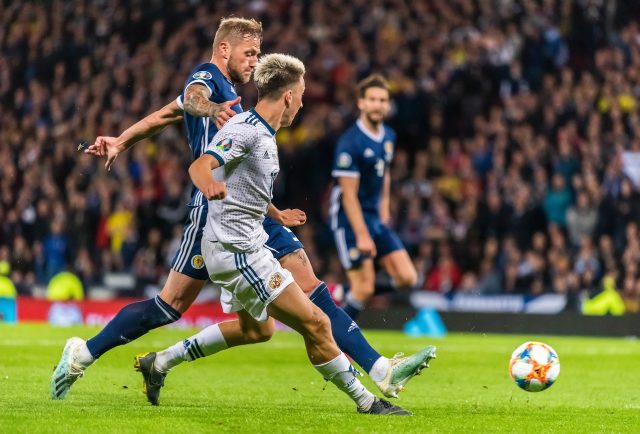
NEED TO KNOW: Euro 2020
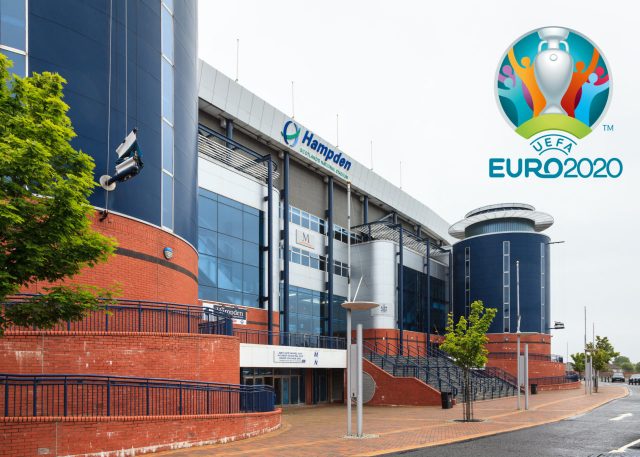
COVID: It’s worth keeping an eye on the official Euro 2020 site (details below) for any pandemic-related late changes and updates to ticketing arrangements. The schedule has been altered, with Seville replacing Bilbao as a host city, and the Dublin matches switching to Saint Petersburg and London. Reduced capacities will apply in all but one of the host cities – Budapest is aiming for 100 percent attendance. If you’re planning to travel to matches, remember to check any restrictions that may apply. Health and safety measures will be in place in the stadiums.
OVERVIEW: Games will be held from June 11 to July 11 in 11 host cities across Europe: Amsterdam, Baku, Bucharest, Budapest, Copenhagen, Glasgow, Munich, London, Rome, Seville and Saint Petersburg. The 24 teams have been split into six groups of four. The top two in each group will advance to the 16-team knockout phase along with the four top-ranked third-place finishers (Scotland fans can stop reading here). The July 11 final will take place at London’s Wembley Stadium.
VAR: Stand by for plenty of controversy! The Video Assistant Referee system – loathed by many players, managers and fans alike – will be used for the first time in the Euros.
May 2021
MORE INFO
FIND out more about the tournament, the host cities and other details at the official Euro 2020 site. READ MORE
THE online Covid travel map provided by International Air Transport Association is a helpful guide to restrictions, which can change quickly. READ MORE
THE growing profile of women’s football means there’s likely to be a lot of interest in the UEFA Women’s Euro 2022 tournament, to be held in England next summer. Check out the official site for full details (and no, Scotland didn’t qualify). READ MORE
RELATED
 FIRST ZHUHAI CHAMPIONSHIPS: Tennis great Andy Murray returned to action at the Zhuhai Championships, a new ATP tournament in China, after a year in which he feared his glittering career was over. READ MORE
FIRST ZHUHAI CHAMPIONSHIPS: Tennis great Andy Murray returned to action at the Zhuhai Championships, a new ATP tournament in China, after a year in which he feared his glittering career was over. READ MORE
 WEIRDEST TENNIS MATCH EVER? The day seven-time Grand Slam winner Venus Williams played a big semi-final on a club-level outside court in Dubai. READ MORE
WEIRDEST TENNIS MATCH EVER? The day seven-time Grand Slam winner Venus Williams played a big semi-final on a club-level outside court in Dubai. READ MORE
 THE EARLY DAYS OF DIVING: For many divers of a certain age, it all started with the James Bond film Thunderball. Until then, the only time you saw divers on screen was in documentaries such as Jacques Cousteau’s The Silent World… READ MORE
THE EARLY DAYS OF DIVING: For many divers of a certain age, it all started with the James Bond film Thunderball. Until then, the only time you saw divers on screen was in documentaries such as Jacques Cousteau’s The Silent World… READ MORE
RECOMMENDED
 WELCOME TO OUR WORLD! Afaranwide’s home page – this is where you can find out about our latest posts and other highlights. READ MORE
WELCOME TO OUR WORLD! Afaranwide’s home page – this is where you can find out about our latest posts and other highlights. READ MORE
 TOP 10 VIRTUAL ATTRACTIONS: Many of the world’s most popular tourists sites are closed because of the coronavirus crisis, but you can still visit them virtually while you’re self-isolating. READ MORE
TOP 10 VIRTUAL ATTRACTIONS: Many of the world’s most popular tourists sites are closed because of the coronavirus crisis, but you can still visit them virtually while you’re self-isolating. READ MORE
 SHIMLA, QUEEN OF THE HILLS: Government officials once retreated to Shimla in the foothills of the Himalayas to escape India’s blazing hot summers. Now tourists make the same journey. READ MORE
SHIMLA, QUEEN OF THE HILLS: Government officials once retreated to Shimla in the foothills of the Himalayas to escape India’s blazing hot summers. Now tourists make the same journey. READ MORE
 TEN THINGS WE LEARNED: Our up-to-the-minute guide to creating a website, one step at a time. The costs, the mistakes – it’s what we wish we’d known when we started blogging. READ MORE
TEN THINGS WE LEARNED: Our up-to-the-minute guide to creating a website, one step at a time. The costs, the mistakes – it’s what we wish we’d known when we started blogging. READ MORE
 TROUBLED TIMES FOR EXPATS: Moving abroad can seem an idyllic prospect, but what happens when sudden upheavals or the inescapable realities of life intrude? READ MORE
TROUBLED TIMES FOR EXPATS: Moving abroad can seem an idyllic prospect, but what happens when sudden upheavals or the inescapable realities of life intrude? READ MORE
Disclosure: Afaranwide is an affiliate of leading travel operators such as Booking.com and Japan Rail Pass. If you purchase through our site we receive, at no additional cost to you, a small commission. We only work with companies we have used and recommend.
